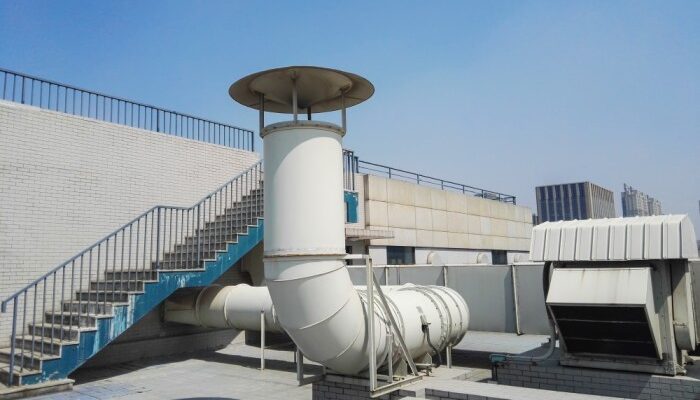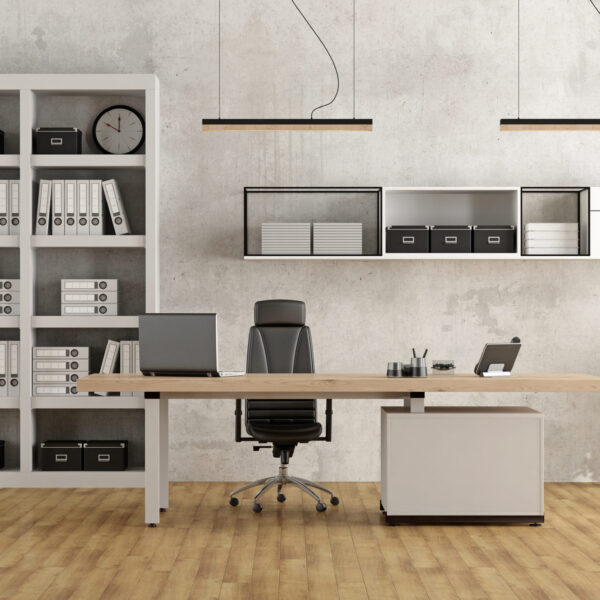
The world has become advanced, thanks to rapid industrial developments. Industries are driving the human race forward, offering employment and everyday-use items. However, industrial environments face serious pollution levels. Industrial processes give birth to pollutants such as dust, chemicals, fumes, and particulates. These pollutants are not only harmful to the environment but also pose serious harm to the workers. If not tackled properly, these pollutants can cause health problems like asthma, pulmonary disease, lung cancer, and heart disease.
Industrial air filtration plays a crucial role in ensuring a safe working environment for the worker. Industries must have an industrial air filtration system in place to capture these pollutants and filter the air. This article will shed light on what industrial air filtration systems are, how they work, and why they are essential for a safe and efficient workplace.
What Are Industrial Air Filtration Systems?
Industrial air filtration systems are specialised equipment designed to remove unwanted particles and pollutants from the air. These systems are designed for factories, processing plants, and other industrial settings where contaminants can adversely affect health, machinery, and productivity. These systems consist of filters, fans, and sometimes additional cleaning mechanisms, all working together to purify the air within the industrial facility.
Depending on the industry and the type of pollutants involved, air filtration systems can be designed to handle:
- Dust, smoke, and fumes from processes like welding, metal grinding, and woodwork.
- Volatile organic compounds (VOCs), chemicals, and odours.
- Bacteria, moulds, and allergens.
How Industrial Air Filtration Systems Work
There are various types of filtration systems available on the market, designed for different facilities. The working principle of an industrial air filtration system can vary depending on the type of system in use. However, the general process involves a few key steps:
- Air Intake
The first step often involves drawing in polluted air through fans or blowers.
- Filtration
Once the air is drawn in, the air passes through filters or scrubbing devices that trap or remove contaminants. Depending on the system, the air may pass through several stages of filtration to ensure maximum purity.
- Exhaust
Once filtered, the clean air is released back into the environment or redirected within the facility. Some systems may also recirculate air after filtering, improving energy efficiency.
- Collection
For filters that collect particles, like dust collectors, the collected dust or material is stored in bins for proper disposal or recycling.
Why You Need Industrial Air Filtration Systems
You have understood what an industrial air filtration system is and how it works, but why do you need them? What are its benefits? Let’s now explore the various benefits of installing a filtration system in your facility.
- Protecting Worker Health
In industries where workers are exposed to dust, chemicals, or harmful fumes, air filtration systems are a critical component of occupational health and safety. Long hours of exposure to airborne contaminants can lead to respiratory diseases, allergic reactions, and long-term health issues. By removing these contaminants, air filtration systems ensure that the air workers breathe is clean and safe.
- Enhancing Equipment Lifespan
Airborne contaminants affect humans and machines alike. Dust and particulates can clog vents, damage moving parts, and degrade the performance of industrial equipment over time. Clean air minimises wear and tear, resulting in longer-lasting machinery, reduced downtime, and lower maintenance costs.
- Improving Product Quality
In certain industries, such as food processing, pharmaceuticals, or electronics manufacturing, even the smallest contaminant can compromise product quality. An industrial air filtration system ensures that the air in production areas is clean and free from harmful pollutants, reducing the chances of product defects or contamination.
- Environmental Compliance
Many industries are subject to strict environmental regulations regarding air emissions. Industrial air filtration systems help companies meet these regulations by reducing the release of harmful pollutants into the atmosphere, thus avoiding costly fines and contributing to environmental sustainability.
- Energy Efficiency and Cost Savings
Modern air filtration systems are designed with energy efficiency in mind. By optimising air circulation and filtration, these systems can reduce the overall energy consumption of industrial facilities. Additionally, keeping the air clean can reduce the frequency of equipment repairs and replacements, leading to long-term cost savings.
An industrial air filtration system is essential for maintaining a clean, safe, and efficient workplace. Whether you’re dealing with dust, chemical fumes, or biological contaminants, investing in the right air filtration system is crucial for protecting your workers, machinery, and the environment. With advancements in technology, these systems have become more efficient, offering a balance between cost-effectiveness and regulatory compliance.
For businesses that want to improve air quality in their facilities, choosing the right industrial air filtration system is a step towards better health, higher productivity, and a sustainable future. If you still haven’t invested in a filtration system, then it is advised to do it as soon as possible. Understand the needs of your facility and select the right system to ensure the safety, efficiency, and success of your industrial operations.
Other Links









